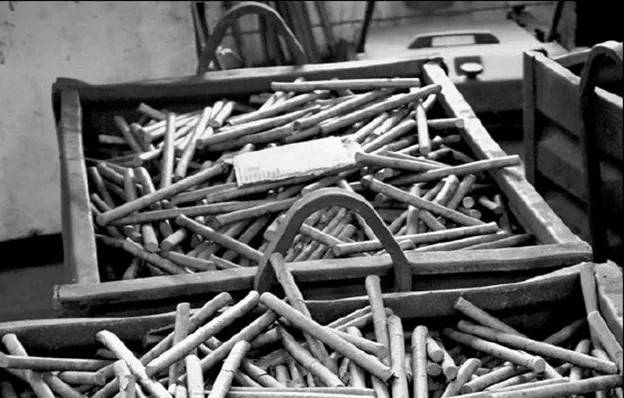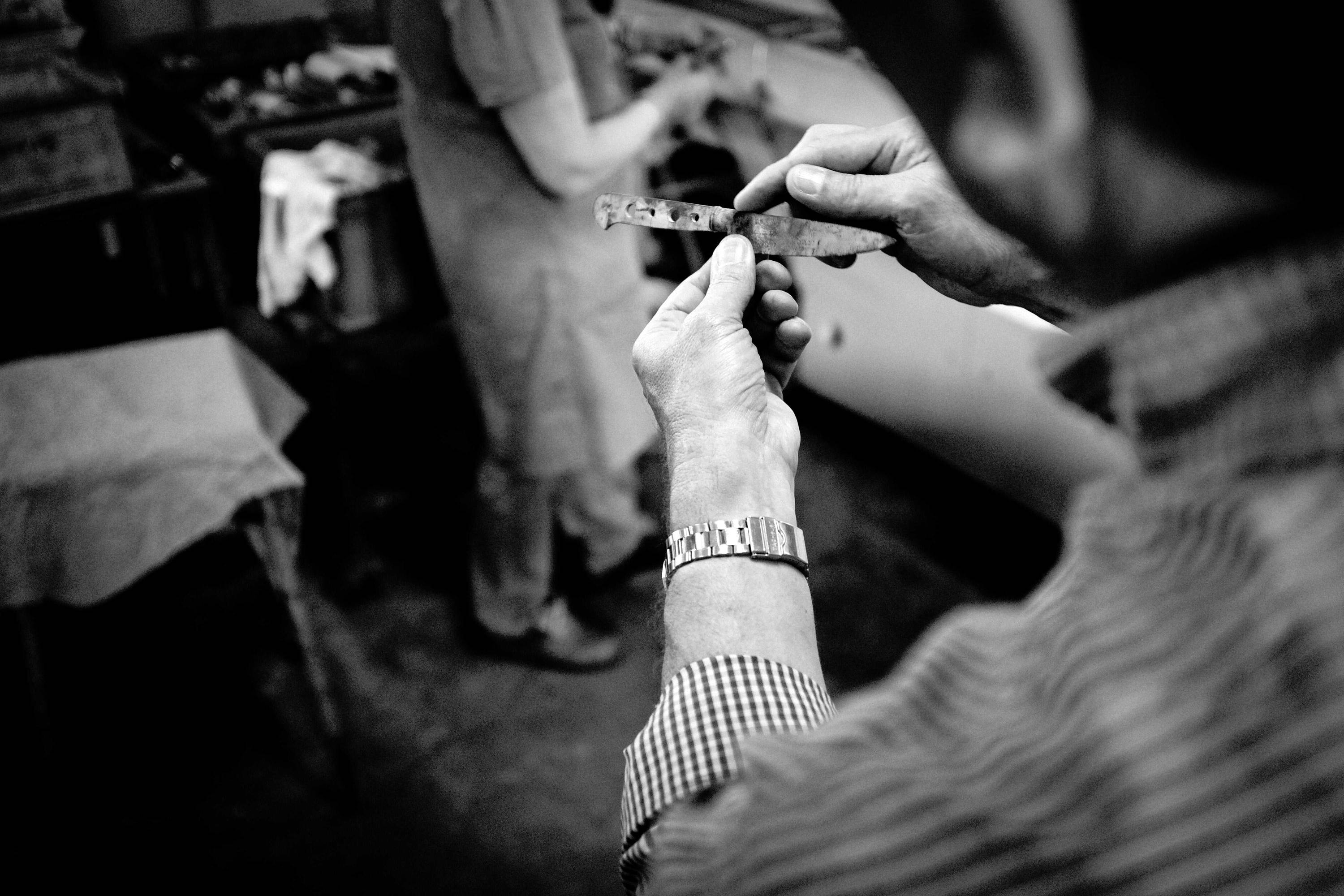Fully Forged Knives Process
For over 400 years, 32 Dumas has proven that durability and precision go hand in hand. It all comes down to the fully forged construction of these knives. Made with nitrogen reinforced steel, delicately precise blade angles, and hand-polished by premier craftsmen, the fully forged process is the highest standard of knife manufacturing.
WHAT DOES FULLY FORGED MEAN?
A fully forged knife is made from just one piece of steel, that is heated and molted into the correct shape. The blade, bolster, and tang of the knives are all fully forged from one steel rod, which provides key benefits to the durability, precision, and balance of the knife. This is different from a stamped or cut knife, as those are cut from one piece of metal and then crafted together. A knife that is claimed to be forged does not always mean fully forged. Fully forged means the whole knife is one piece, running from the tip of the blade to the handle. A forged or stamped knife is made of separate pieces constructed together.

WHAT IS THE PROCESS?
The fully forging knife process all starts with one piece of coil that gets pressed into a rod of steel. This rod is then heated and repressed, to concentrate more steel in the center, forming a sort of ball of in the middle of the rod. This is to help forge the bolster of the knife, which is the connecting piece between the handle of the knife and the blade. This helps create balance and comfort when using the knife.
Then the steel is heated at 110 degrees Celsius, placed under a drop hammer, and the whole blade gets stamped. It is then carefully laser cut into a fully forged tang, which means the steel is one solid piece that goes from the blade to the bottom of the handle. Then the tang is drilled before moving onto its many phases of quality control and additional heat treatments. From there, the tang undergoes handle mounting, smoothing, polishing, sharpening, and engraving. These heat treatment steps are crucial, as they help make the blade as sharp as possible. After freezing the molecular structure of the blade, the heat treatment then softens the blade to prevent breaking. The harder a knife is, the more brittle and suspectable to breaking. This treatment relaxes the structure and makes it less prone to breakage.

BENEFITS OF FULLY FORGING:
This traditional craftmanship process usually carries a higher cost of manufacturing but provides crucial benefits to the knife. Having a solid fully forged knife creates balance between the bolster and the blade with an even weight distribution, which in turn provides superior cutting power. 32 Dumas knives do not undergo welding or bolster stamping during the forging process, as these can create weakness at their junction point; this helps ensure the knife maintains its durability over time.

WHY 32 DUMAS?
Investing in a fully forged knife, rather than a stamped knife, means you are investing in the highest-quality, extremely durable, comfortable, and efficient knives. Stamped or partially forged knives have less balance, which makes them more unsafe. The lack of balance is made worse by the lack of bolsters; only fully forged knives have a true bolster. These stamped or partially forged knives also have lower durability, due to the softness of the metal. Stamped knives cannot hold their sharpened edges for as long as fully forged knife, which means they must be sharpened more frequently.
32 Dumas knives are the only true and fully forged knives available on the market, that are made from one piece of steel. For nearly five hundred years, 32 Dumas knives have prioritized precision and efficiency to deliver reliable knives that will last a lifetime. Designed and made in France, these knives only leave the factory in Thiers after careful forging and meticulous testing by premier craftsmen. 32 Dumas knives are truly fully forged and have yet to be rivaled in their fully forged construction.
